Emma R Andersson, Associate Professor (Docent in Developmental Biology & Principal Researcher)
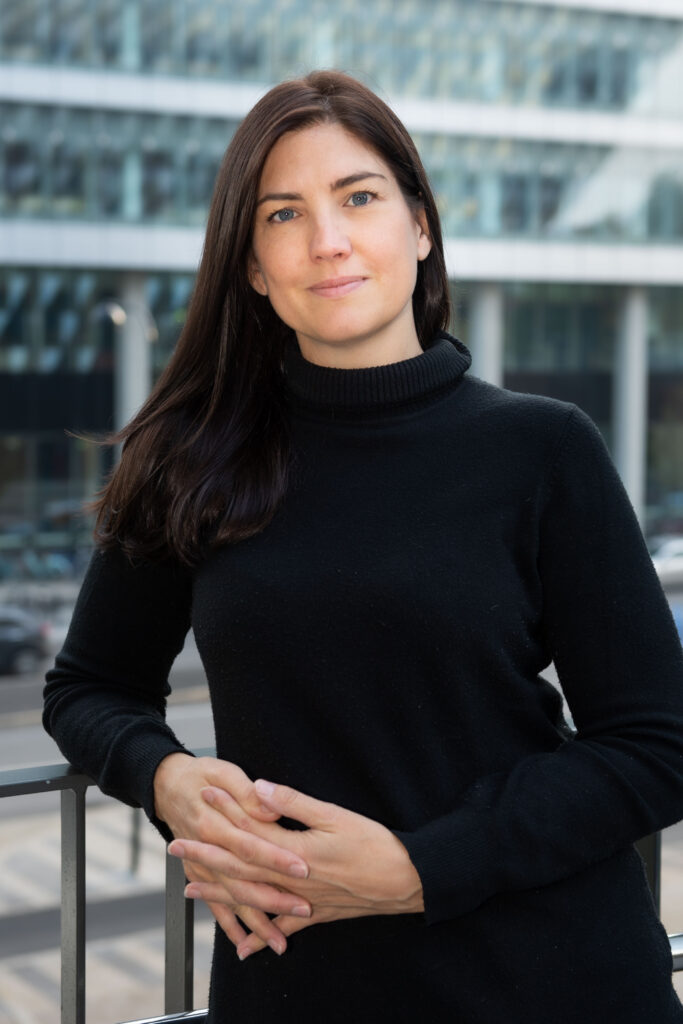
Our lab is focused on developmental principles governing organ differentiation and morphogenesis, and harnessing this knowledge for engineered regeneration or therapy.
After defending her PhD in Developmental Neuroscience in 2009, Emma R Andersson pursued postdoctoral studies with Professor Urban Lendahl at the Karolinska Institutet, where her work focused on the role of Notch signaling in development and disease of the nervous system and in the liver. In order to devise a method to rapidly manipulate gene expression in the developing embryonic nervous system and other organ systems, she performed guest research in the laboratory of Professor Elaine Fuchs (Rockefeller University, New York, USA) to further develop the technique of ultrasound-guided in utero microinjection of lentivirus. This technique was originally developed to target developing skin, but the Andersson lab has now established protocols which allow targeting of several organ systems during development, including the nervous, gastric and respiratory systems. She has established the technology as a core facility (Infinigene: Infrastructure for ultrasound-guided in utero injection and rapid genetic manipulation in mouse), in addition to a core facility for virus production. In 2017, thanks to the EASL Mentorship Award, Dr Andersson also spent time at Yale Medical School during a mini-sabbatical with Professor Maria Strazzabosco. Now the lab combines molecular, developmental, and computational biology to address fundamental mechanisms of development of the nervous, vascular and hepatic systems, of relevance to human health.
Lenka Belicova, MSCA postdoc
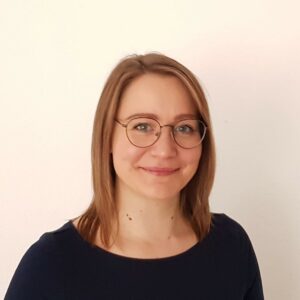
Lenka joined the lab as a postdoc in June 2021. She is fascinated by questions of how cells make fate decisions and how they organize themselves into functional tissues and organs. To the Andersson lab, she brings her expertise in hepatocyte biology and in vitro culture of primary cells developed during her PhD, which she performed under the supervision of Prof. Dr. Marino Zerial at the Max Planck Institute of Molecular Cell Biology and Genetics in Dresden, Germany. For her thesis on Molecular mechanisms of hepatocyte polarity, she was awarded a PhD from the Medical Faculty Carl Gustav Carus of the Technische Universität Dresden, Germany. Using the newest tools in our lab, she will dissect epithelial cell lineages, their heterogeneity and fate transitions in developing and regenerating livers.
Agustin Corbat, postdoc
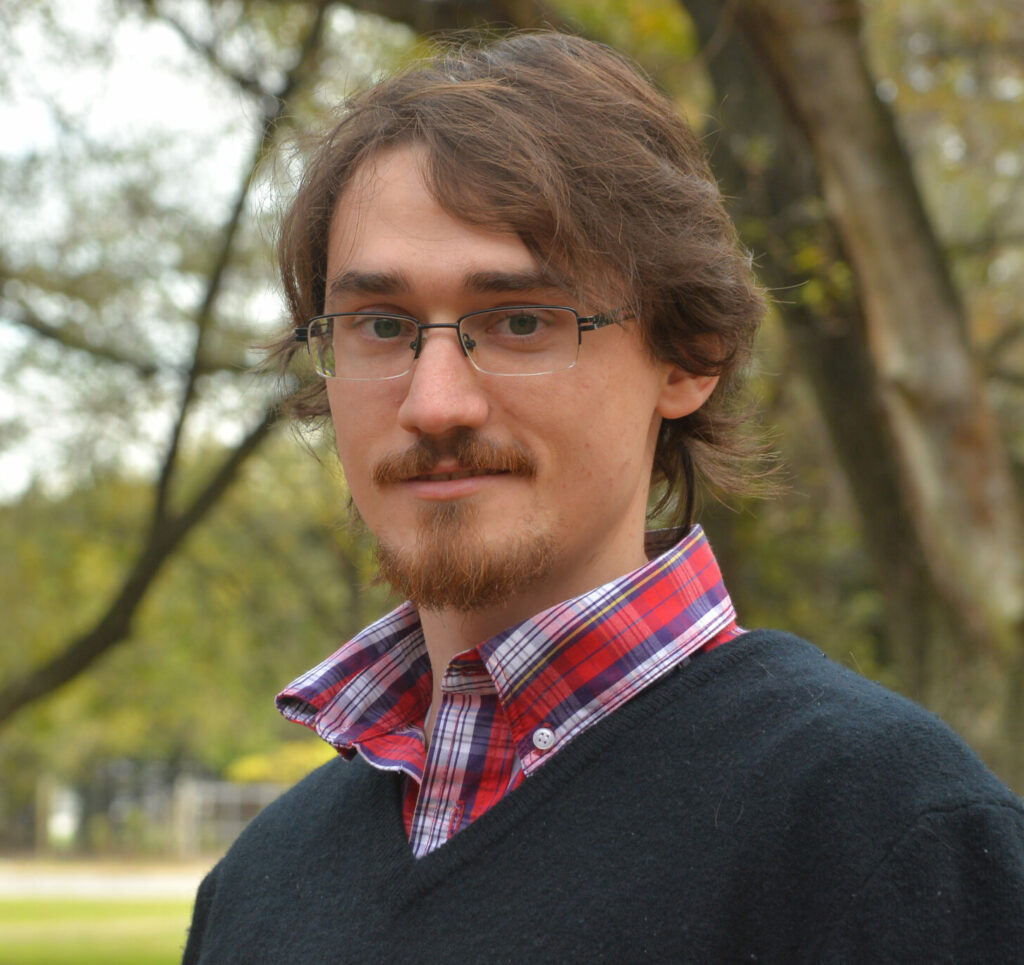
Agustin joined the ER Andersson Lab in April 2022 as a postdoc. He is deeply interested in understanding how information travels and is processed by cells to achieve the architecture tissues and organs need in order to be functional. By applying advanced microscopy techniques and live imaging he aims to understand how Notch intercellular communication determines the fate of neighboring cells to achieve such specific patterns.
He received his PhD in Physics in August 2021 at the University of Buenos Aires in Argentina where he studied how signals travel throughout the apoptotic network by implementing FRET based biosensors to image caspase activity in single cells. This information was used to improve previously developed mathematical models describing the reactions involved in the complete apoptotic cascade. During his PhD, Agustin was also involved in designing open-science prototypes such as 3D-printed filter wheels to adapt custom and commercial microscopes.
Sandra de Haan, PhD student (KI-NIH program)
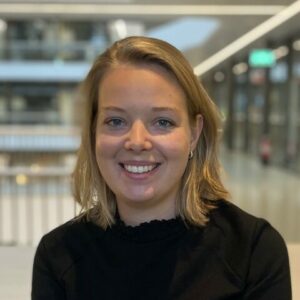
Sandra de Haan is a PhD student in a collaborative PhD program between the Andersson lab at the Karolinska Institute and the Kelley lab at National Institute of Deafness and Other Communication Disorders (NIDCD/NIH) in the United States. She previously obtained her BSc. and MSc. in Biomedical Sciences at Leiden University in the Netherlands. Her PhD project focusses on understanding how Notch signalling mediates patterning of the developing inner ear (Organ of Corti). For more info see Sandra’s LinkedIn Page.
Jingyan He, PhD student (CSC program)
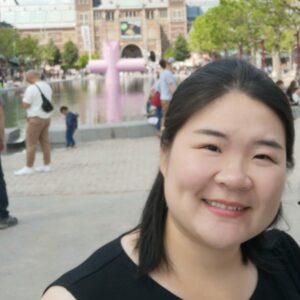
I received my Master degree from Zhengzhou University in China, majoring in reproductive medicine. This year, I moved to Sweden and joined Prof. Andersson’s lab at the Department of Cell and Molecular Biology (CMB) to continue my studies. My passion for research is extremely strong and I am very interested in the cutting-edge new technique ultrasound-guided nano-injection.
My PhD project focuses on the liver Notch Code, aiming to investigate the roles of different Notch receptors and ligands in controlling embryonic liver development and malignancy. We also aim to investigate how and whether miRs can be used to regulate Notch signaling in liver.
Elucidating how different Notch components interact during liver development and homeostasis will be essential to improve our basic understanding of the developmental processes, and would also allow improved precision therapy for Alagille syndrome and liver cancer.
Noémi van Hul, Senior Scientist
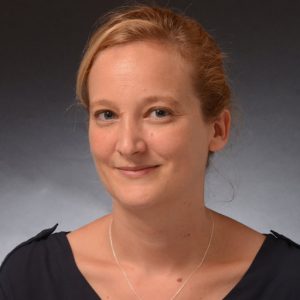
Noémi received her PhD in 2011 at the Université catholique de Louvain (UCL) in Belgium where she worked on the relationship between liver progenitor cells and extracellular matrix in the regenerating liver under the supervision of Prof Isabelle Leclercq. Short after, she joined Prof Tania Roskams’ liver pathology lab at the Katholieke Universiteit Leuven (KUL) where she had the opportunity to work with human liver samples representing a broad range of liver disease. Early 2014, Noémi exchanged Belgium for Singapore to work on a liver project in the Cell Cycle and Cancer lab at the Institute of Molecular and Cell Biology (IMCB), A*STAR. A collaboration with a lab specialized in tight junctions, led to the observational finding of a mouse model lacking bile ducts which was the onset for a growing interest in bile duct morphogenesis, tubulogenesis and maintenance. In April 2018, Noémi joined Emma Andersson’s lab to participate to the in-depth analysis of the malformation of the biliary tree in the Nodder mouse model aiming at understanding the hepatic manifestation of the Alagille syndrome.
Afshan Iqbal, PhD Student
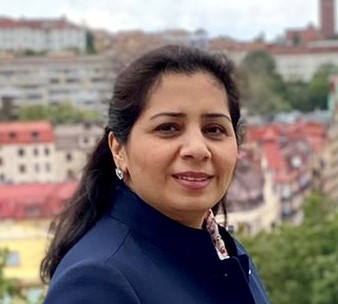
Afshan is recently recruited to pursue doctoral studies. She is also working as Lecturer at the University of the Punjab, Pakistan. Her PhD project aims to develop therapies for Alagille syndrome and to elucidate the mechanism of Notch control of growth factor pathways in Alagille syndrome. In parallel, she will study whether putative treatments are not only sufficient, but safe.
David Kosek, PhD Student
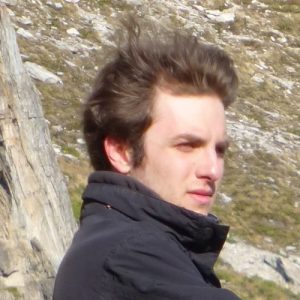
David has an MSc. in molecular biology from Uppsala University, where he worked on ribozyme catalysis. He studies gene regulation by microRNAs, with a special interest in their target selection and role in regulatory networks underlying cellular and developmental processes.
Bettina Semsch, Animal technician specialist and team leader, technician at INFINIGENE
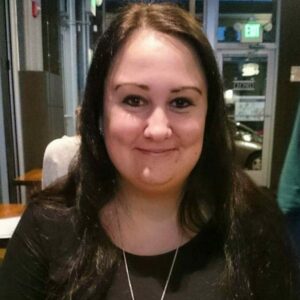
Bettina Semsch was born in Heidelberg, Germany. In 2009 she moved to Sweden and became animal technician and team leader at the production unit KM-W and INFINIGENE.
She works 50% for INFINIGENE and 50% for the lab. Bettina is an expert in embryo transfer, cryopreservation, vasectomy, microinjection, anesthesia, blood sampling and much more.
During her free time, Bettina likes to meet friends, cook, read, go to the movies, travel and she is absolutely fascinated by astronomy & astrophotography. She likes to look at planets, stars and galaxies through her telescope. On her last visit in Germany she met the German Astronaut Alexander Gerst after his lecture and it was such a great experience to talk to him. Bettina’s best moment was a parabolic flight where she was weightless for over 30 minutes – she really wants to do that again as soon as possible!
Elisabeth Verboven, MSCA postdoc
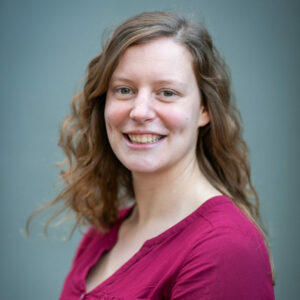
Elisabeth joined the lab as a postdoc in June 2021 to investigate the mechanisms controlling bile duct morphogenesis in the context of Alagille syndrome. Elisabeth developed a passion for the mysteries of developmental biology during an Erasmus exchange as part of her bachelor’s studies at Lund University, Sweden. After a research experience at Tsinghua University (Beijing, China) where she studied colon cancer as part of her Master’s thesis, Elisabeth decided to pursue a PhD in Biomedical Sciences in the lab of Dr. Georg Halder (VIB – KULeuven, Belgium). She investigated the role of Hippo signaling in liver regeneration and cancer, supported by a Doctoral fellowship from the Flemish Research Foundation (FWO). Her PhD work triggered her interest in the highly organized and beautiful structure of the biliary tree. Since obtaining her PhD in 2020, Elisabeth aims to continue investigating the development of the biliary system and its interactions with surrounding systems using 3D visualization methods and loss of function models.
Paulina Zydowicz-Machtel, postdoc
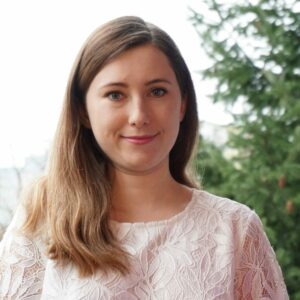
Paulina joined the lab in March 2021 to investigate gene expression regulation by microRNAs, in liver development and liver-associated disorders. This project is a collaboration with the Katja Petzold Lab. She obtained her PhD in 2018 in the Institute of Bioorganic Chemistry, Polish Academy of Sciences in Poznan. During her PhD she identified the role of secondary structure of p53 mRNA in the translation initiation process. That time also chanelled her interests towards manipulation the gene expression using short non-coding RNAs such as siRNA, ASO and microRNA. Now, Paulina aims to continue exploring the microRNAs as potential therapeutic tools to design precision therapy of liver disorders and cancer.
ALUMNI (staff, postdocs and PhD students, years in ERA lab in brackets)
Jan Masek (post doc 2016-2020), now PI at Charles University Lab link here
Dimitri Schritt (bioinformatician 2017-2018), now Senior Data Scientist at Scania
Simona Hankeova (PhD student 2012-2019, post doc 2019-2021, extended due to pandemic) now post doc at Genentech
Katrin Mangold (PhD student 2015-2022, defended 2022-06-08)
Marika Sjöqvist (post doc 2015-2017), now Design transfer specialist at PerkinElmer
Ileana Guzzetti (post doc shared with Katja Petzold lab, 2015-2017), now at AstraZeneca
Emine Ezel Cilek (post doc 2018-2019)
Aiman Elmansuri (post doc 2015-2017)
Linus Christerson (post doc 2015-2017)